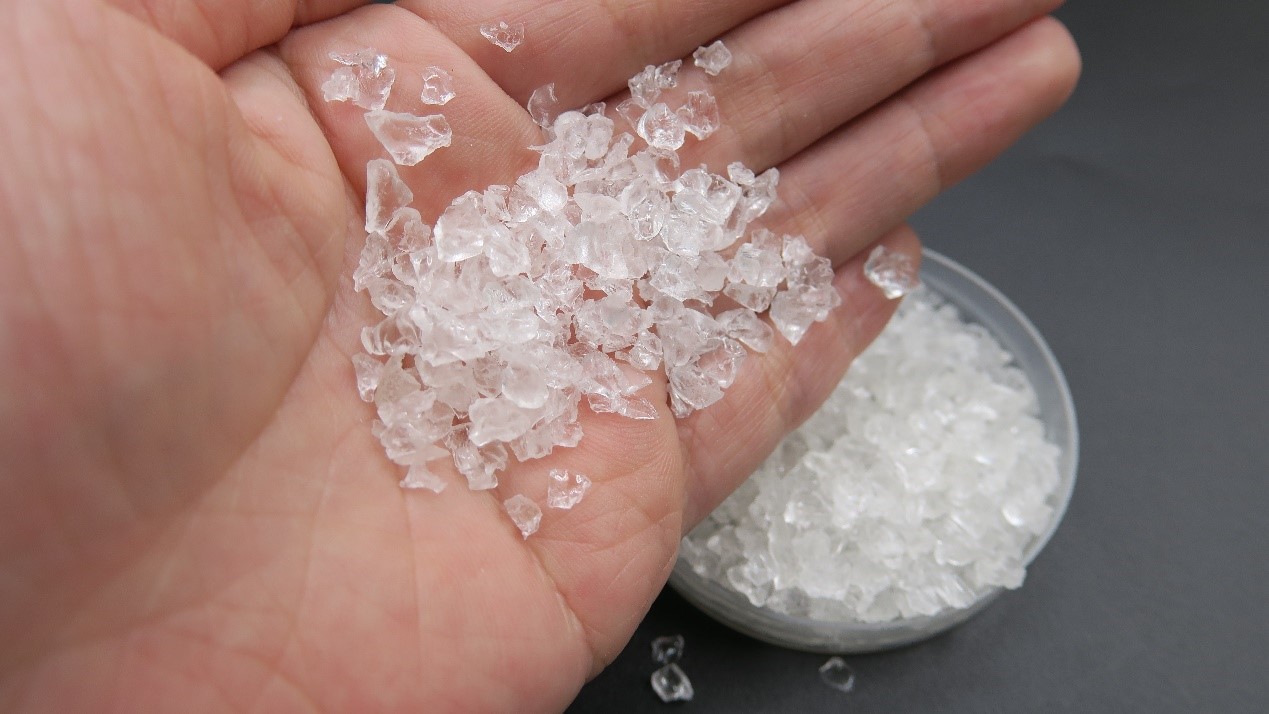China is the world’s largest producer of table grapes, grape planting area accounts for 12.3% of the world. Among them, Hami region of Xinjiang Province is a golden area for grape planting and production due to the large temperature difference between day and night and sufficient illumination. Hami viticulture is also renowned for its long history, large scale production and good quality.
However, it should be noted that Hami is one of the most arid regions in China, with an average annual rainfall of about 30 mm, while the annual evaporation is more than 3000 mm, and the lack of water resources seriously affects the grape planting area and grape quality.
In order to the long-term and healthy development of the grape industry in Hami area, it is very important to reduce water evaporation and soil leakage, improve the utilization rate of water resources and save water!
At present, among the many water-saving and water-retaining measures, the use of agroforestry water-retaining agents is the most valuable and potential for development, and international experts have also predicted that water-retaining agents will become the fourth largest agricultural chemicals after fertilizers, pesticides and films.
In order to study the application and benefit of water retaining agent on grapes, the research group of Zhongkai University of Agriculture and Engineering has carried out the dosage and application method of water retaining agent on planting and fruiting grapes from 2004 to 2005, and carried out the application study on planting and fruiting grapes from 2005 to 2007.
Specific research results are as follows:
1、Effects of water retaining agent on 0-40cm soil water content and grape sugar content of fruiting grapes
The experiment was carried out on vines that had been bearing fruit for 5 years. The experiment consisted of control (no application), 20 g/plant, 40 g/plant, 60 g/plant, 80 g/plant, 100 g/plant, 120 g/plant, and seven dosage treatments, with two application methods of direct soil mixing and gel soil mixing under each dosage. Soil samples were collected the day before each irrigation.
The results showed (see Table 1) that under the dosage of several water-retaining agents, the water content of 0-40cm soil decreased by 120
The soil water content of g/plant was lower than that of control, but the soil water content of other treatments was lower than that of control
With the increase of the amount of water retaining agent, the soil water content had a decreasing trend.
Under the dosage of several water-retaining agents, the sugar content of grapes increased to different degrees. When the soil was mixed directly, the sugar content of 80 g/plant and 120 g/plant was the highest, and the absolute sugar content increased by 1.0% and 1.75% compared with the control, and the relative increase was 4.0% and 6.19%. When the gel was mixed with soil, the sugar content was the highest at the dosage of 60 g/plant and 120 g/plant, and the absolute sugar content increased by 1.50% and the relative increase by 6.25% compared with the control.
After comprehensive analysis of soil water content, grape sugar content and cost, it was preliminatively concluded that direct soil mixing method was more suitable for the amount of 60-80 g/plant of fruit-bearing grapes.
2、The effect of composite water retaining agent on the water content of grape soil and leaves at full fruit stage
The experiments were carried out on grapes at the peak fruit stage of 8 years and 6 years respectively, and were mixed with a certain amount of organic fertilizer according to the dosage of 100g and 200g per plant. During the growth period of grapes, an appropriate amount of chemical fertilizer was applied to study the effects of composite water retaining agent products on grape yield and quality.
The results showed (see Table 2) that the water content of soil and leaves was higher than that of the control treatment no matter on the fifth or tenth day after watering with the compound water retaining agent applied to grapes planted on sandy soil, especially the 200g soil water content per plant on the tenth day after watering in high temperature weather (July 18, fruit expansion period) was as high as 21.12%. In contrast, the soil water content increased by 231.60% and was only 6.39%.
3、Influence of water retaining agent on grape yield and sugar content in full fruit period
The results in Table 3 showed that after the application of the compound water retaining agent, the yield per ear, fruit grain weight and plant yield were significant
The yield per mu reached 2105.4 kg and 2343 kg respectively when applying 100 g and 200 g compound water retaining agent per plant, and the yield increased by 235 kg and 470 kg respectively, increasing by 12.59% and 25.29% compared with the control, respectively. The sugar content was more than 18%, reaching 18.83% and 18.16%, increasing 9.92% and 6.01% compared with the control, respectively, and the sugar content was increased by 1.75% and 1.03%, respectively. If the price of grapes is calculated according to 1.5 yuan/kg (the average market price in Hami City), the increased output value per mu is 829.5 yuan and 1437 yuan, deducting the cost of water retention agent 165 yuan and 330 yuan, respectively, and the net increase income per mu is 664.5 yuan and 1107 yuan.
4、Influence of water retaining agent on the water content of grape soil and leaves at full fruit stage under water control conditions
From late June to late July, the hot weather lasting for 1 month is the critical period for grape fruit expansion, which
If the irrigation is not timely, the grape yield is greatly affected. As can be seen from Table 4, the water control test was arranged in the water retaining agent test site of gravel sandy soil in high temperature season. The soil water content of 55.6 square meters of water applied to each grape plant reached 16.38%, but the soil water content of 55.6 square meters of water applied to mu was only 5.92%, and the soil water content increased by 161.82%.
Demi agroforestry water conservation agent has the function of saving water and retaining water, promoting growth, improving quality and increasing production. It can greatly reduce the maintenance and irrigation cost and increase production and income when applied in the process of grape growth!








